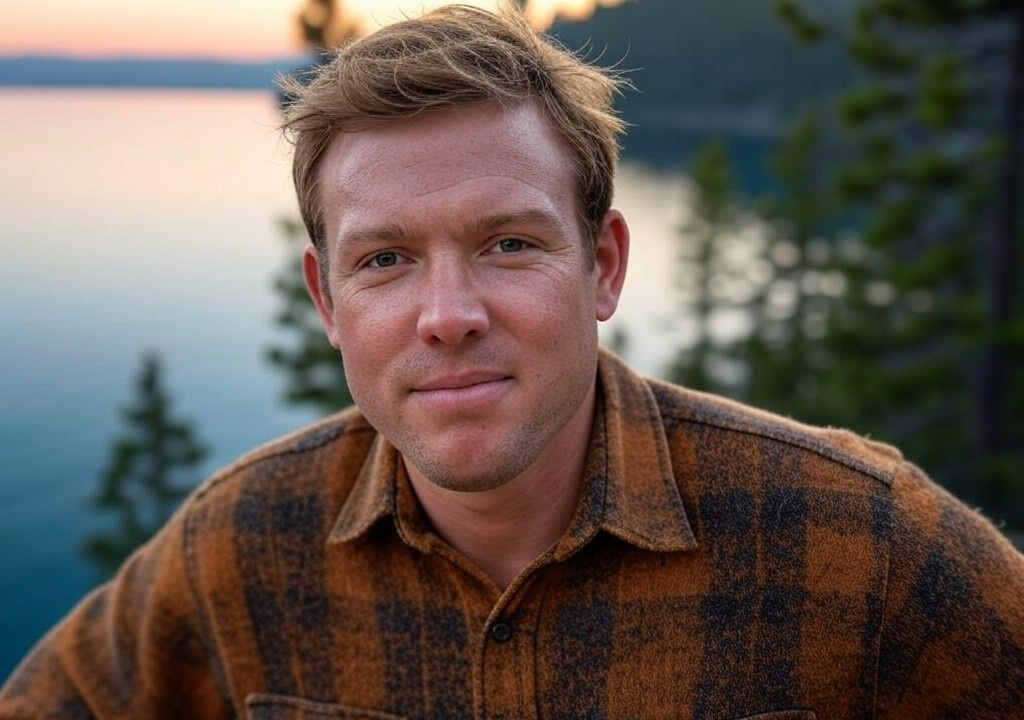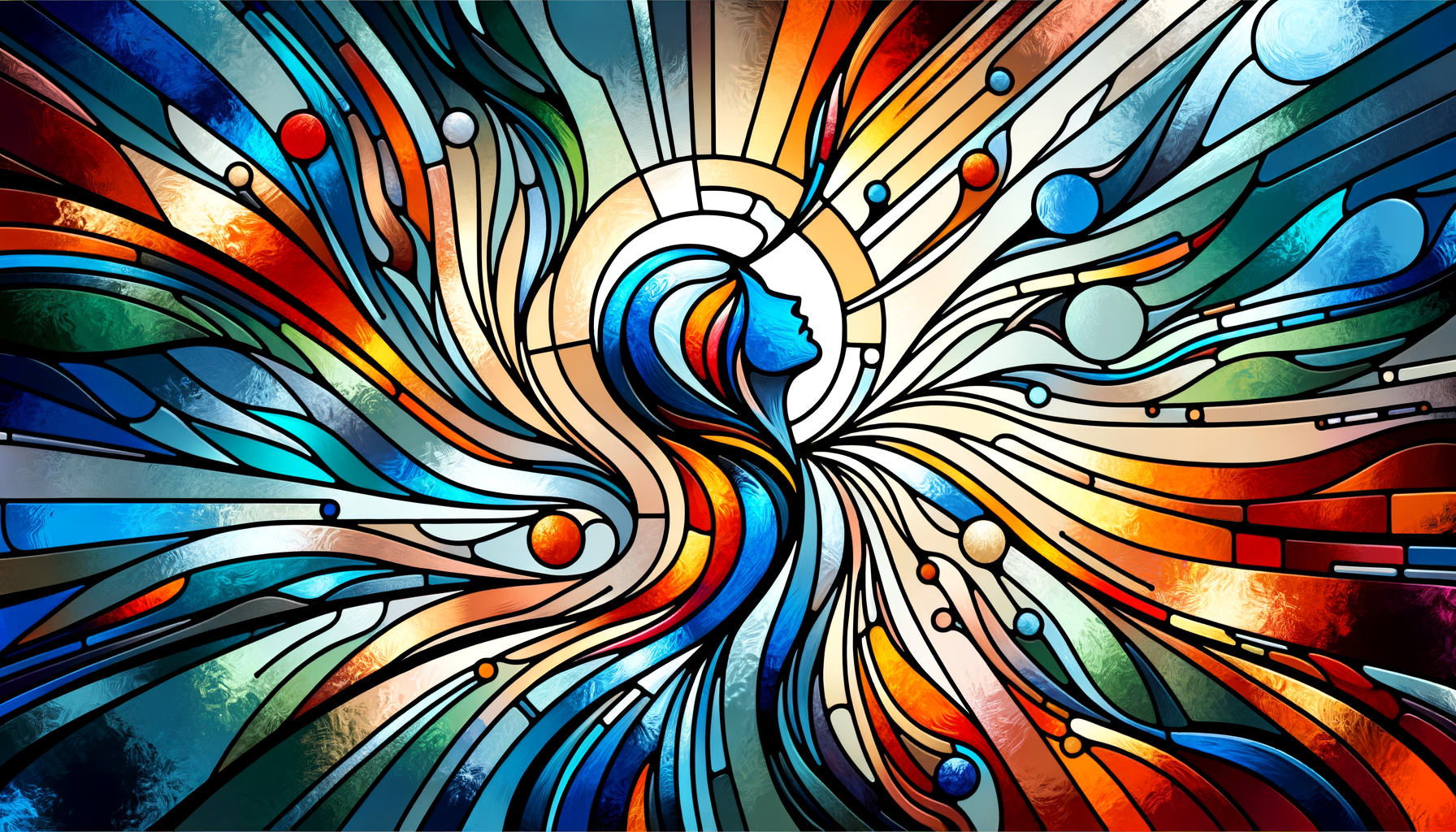We All Have Scars—Here’s Why That’s a Good Thing
There’s a small scar on the back of my hand—nothing dramatic, just a faint white line that catches in certain light. It happened when I was nine. My friends and I decided to build a "raft" to sail across Lake Tahoe. I put raft in quotes because, looking back, I’m pretty sure we were one soggy log away from a middle school reenactment of Titanic. Long story short, the contraption buckled, I slipped, and sharp rocks by the shore turned my hand into something resembling a poorly sliced avocado.
At the time, I was inconsolable, howling more out of embarrassment than pain. But now? That scar has become a part of my personal folklore, something I laugh about and recount over fireside beers. And here’s the thing: literal scars are like that. They're messy and a little foolish in the moment but become badges of experience in hindsight. The same goes for the metaphorical scars we pick up on our dating and relationship journeys—each one exposed or healed tells a story.
Let’s dive into how life’s scars—both physical and emotional—shape us in the best ways possible and why embracing them might just be the secret to building deeper, more authentic connections.
The Scars That Start Conversations
You know those icebreaker games where you’re asked to share “something quirky about yourself”? Scars are built for moments like this. They add a layer, a peek behind the curtain of who you are beyond the curated version people see on a first date.
Take that small jagged scar I earned while learning how to fly-fish on the Truckee River. It’s not just some mark; it’s shorthand for an afternoon of mosquitos, missed casts, and inadvertently hooking my own earlobe (nature can be humbling, folks). Whether it’s explaining the time you wiped out on a skateboard trying to impress your eighth-grade crush or a burn mark earned in a midnight kitchen escapade making crème brûlée, scars lead to stories.
Not a fan of literal scars? Consider the metaphorical ones. Like that time you swore you’d never date anyone who "doesn’t love The National" (you learned, didn’t you?). Or the heartbreak that thrust you into solo trips to Costa Rica, discovering you’re both heartbroken and a surprisingly adept surfer.
Sharing these not-so-perfect moments builds connection. It turns basic “What do you do for fun?” small talk into “Let me tell you about the time I utterly embarrassed myself but came out wiser for it.” Real talk: isn’t someone more irresistible when they’re unapologetically real?
Own Your Emotional Patagonia
Years ago, while hiking to Desolation Wilderness, I tore my jacket on a branch. It was devastating—until I busted out my duct tape stash and laughed it off. Sure, the patch-job wasn’t going to win any REI fashion contests, but it got the job done. Relationships and their battle wounds work the same way. Experience wears us down, but it’s not something to cover with fig leaves.
Got ghosted after you thought they were "the one”? Felt betrayed when a friend or partner let you down in a big way? These moments are your emotional Patagonia jacket—proof that you’ve weathered the elements and emerged a little wiser, maybe even more resilient.
Here’s the trick: don’t try to Maybelline it all away. We’ve become experts in airbrushing our lives—cropping out the grief and tender spots while exaggerating the glossy highlights. But the people you vibe with most don’t need the glossy brochure version of you. They’ll likely be drawn to the person that says, “Yeah, I’ve messed up. I’ve been hurt. But here’s what I’ve learned.”
If you're carrying baggage—and let’s be honest, who isn’t?—the key isn’t pretending it’s nonexistent; it’s learning to travel lighter. Share your “scars” in small doses as trust builds. You might find that revealing what’s shaped you, whether heartbreak or hope, encourages someone else to take off their metaphorical armor too.
Scars as Guides, Not Wounds
One summer while I was working with the Forest Service, I came across a hundred-year-old Jeffrey pine near a charred patch of earth from an old fire. Its bark was scorched black in one section, but the rest of it reached skyward in full, glorious bloom. That tree didn’t just survive the fire; it adapted. It stood tall, incorporating the burn into its story.
We can all take notes from that resilient pine. Scars, both literal and figurative, show us where we’ve been and, more importantly, where not to step next time. (Pro tip: you don’t have to fall for someone who only texts you after 10 PM anymore. You’ve already earned that merit badge.)
The trick is to view what hurt us as lessons rather than recurring Netflix reruns of heartbreak. That “scar” from your last breakup? It taught you the importance of boundaries. That cringe-worthy first date where someone grilled you like a job interview? It helped you realize what chemistry doesn’t feel like.
Failure isn’t something to fear; it’s a compass—maybe a rude one, but still a compass—pointing you toward better choices and what truly aligns with you.
How to Reframe Scars into Superpowers
We’re all tempted to hide scars, whether it’s glossing over a failed relationship or strategically omitting our more awkward quirks during first-date intros ("no one needs to know about my Spice Girls karaoke obsession…yet”). But flipping those scars into strengths can be more magnetic than perfection ever could be.
Here’s how:
- Make Peace with the Past: Turn your scars from anchors into wings. You’re not the breakup or failed situationship; you’re a person who’s gaining clarity on what you deserve.
- Laugh at the Chaos: Humor is scar balm. Has your heart been stomped on like a cheap piñata? Maybe, but you’re also armed with stories funnier than some Netflix stand-up routines. Don’t be afraid to laugh at the weird mess that is modern love.
- Flip the Narrative: Scars don’t make you “damaged goods.” They make you relatable, resilient—human. When you own your journey, you set the tone, and that tone says, “This is who I am. Take it or leave it.”
- Connect Authentically: Vulnerability can be terrifying. It can also be magnetic. By being open about your highs, lows, and sideways adventures, you invite others to do the same, building trust one shared scar story at a time.
The Parting Thought: Scars Build Bridges
If there’s one thing my cabin-living, forest-tromping, adventure-documenting life has taught me, it’s this: scars—whether carved by wild rivers or wild emotions—are evidence of a life fully lived. They’re the laugh lines on your story, not just imperfections to hide.
When it comes to love and connection, it’s not about presenting a polished version of yourself. It’s about showing the scrapes and wear and saying, “This is me, trail dirt and all.” Scars are where the richest stories are born—and if you share the right ones with the right person, you might just write a new adventure together.
So, embrace the mess, make peace with your battle marks, and let your scars tell the stories worth sharing. Who knows? Someone out there might just see them for what they really are: beautiful proof that you’re human, and you’re here.




















